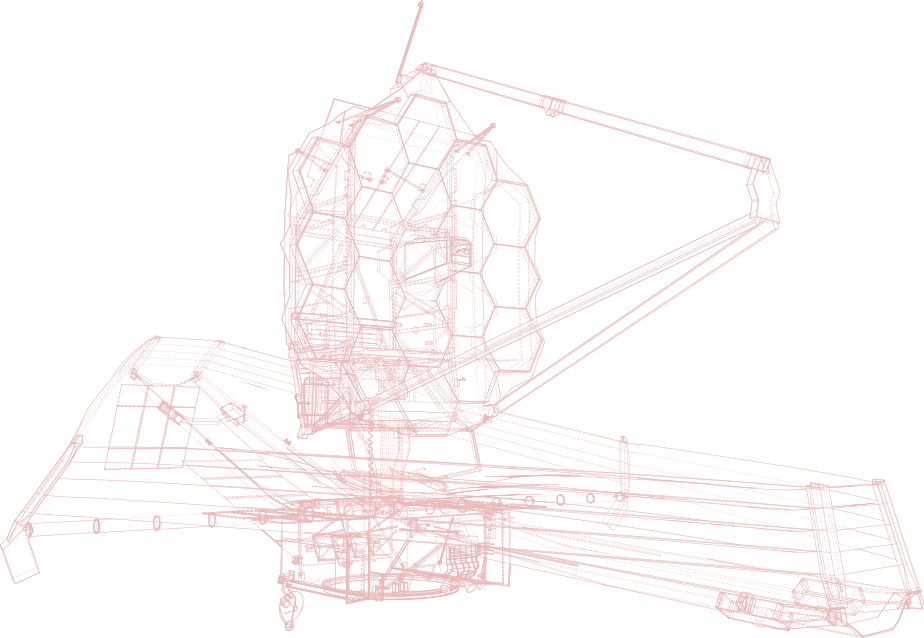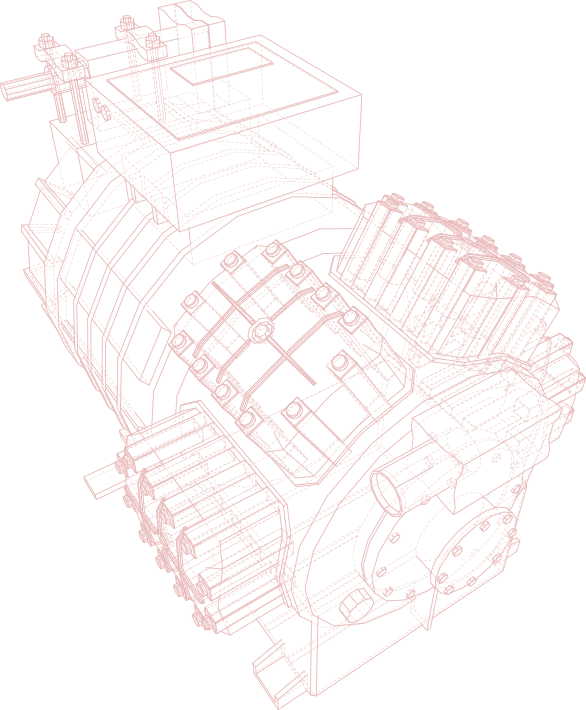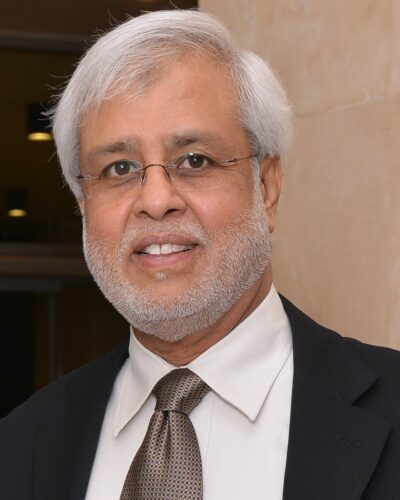Genetic Disorders Research
Exploring the high incidence of genetic disorders in the UAE and understanding their cellular mechanisms, with the goal of better diagnosis and potential interventions.
Stay tuned for new updates and exciting content on this page.
Background of the Issue
The UAE ranks sixth worldwide in terms of genetic diseases prevalence, with a concerning 75.9 birth defects per 1,000 births. A significant cause of this high incidence is the common practice of consanguineous marriages in the UAE.
Recessive Genetic Diseases Discovery
A devoted research team has identified over 400 recessive genetic disorders in the country. These disorders, some of which are unique to the UAE population, require in-depth study to understand their root causes at the molecular and cellular levels.
The Path Forward
Our project is geared towards expanding upon our initial discoveries. We are committed to achieving a comprehensive understanding of these genetic conditions to help the national population. By delving into the root causes, we aim to enhance diagnostic measures and potentially develop intervention strategies to alleviate the genetic disease burden in the UAE.
High incidence rate of birth defects in the UAE
UAE's position in the prevalence of genetic diseases worldwide
Number of identified recessive genetic diseases in the UAE.
AImS
How We Plan To Solve Challenges
Recruitment Goal
We aim to identify and engage at least 300 families, where one or more members are affected by a suspected Mendelian condition, capturing about 10% of anticipated birth defects in the Emirati population over a span of five years.
Source of Data and Samples
We will procure data and samples from affected patients and their families primarily from three healthcare institutions: Tawam Hospital (Al Ain), Sheikh Khalifa Medical City (Abu Dhabi), and Fujairah Hospital.
Genetic Analysis and Identification
Genetic pedigrees of the families will be charted out. Utilizing advanced next-generation sequencing tools, we aim to pinpoint the causative genes and/or the specific genetic variants responsible for the conditions.
Understanding Pathogenesis
Our objective is to decipher the molecular and cellular pathogenesis related to the identified genetic variants. This will be done through the study of patient cells or by employing in-vitro cellular models.
Potential Therapy Evaluation
We will assess the potential remedial effects of certain FDA-approved compounds in treating various metabolic and lysosomal storage disorders. This evaluation is geared towards understanding the viability of existing compounds in therapy.
Projects
Natural History of GM1-gangliosidosis in Emirati patients
delves into the complex processes of protein cellular trafficking, specifically focusing on understanding the role and implications of misfolded proteins within the endoplasmic reticulum (ER), a critical aspect in several genetic diseases including cystic fibrosis and familial hypercholesterolemia. Through deep research, we aim to develop novel therapies targeting these intricate cellular processes.
Investigate the role of the ER-associated degradation (ERAD) pathway in the handling of misfolded proteins in single-gene disorders
Explore the recognition processes of luminal misfolded lesions of membrane proteins in the canonical ERAD pathway
Determine the functions of ERAD components such as SEL1, HRD, and Derlin 1 & 2 in managing membrane proteins with misfolded luminal lesions
Evaluate the potential of pharmacological inhibitors like Kifunensine and Eeyarestatin in restoring the functionality of membrane proteins with misfolded luminal lesions
Implementing Pharmacogenomics in Cardiovascular Disease Treatment in the UAE
The "EmHeart" project seeks to revolutionize the treatment of cardiovascular diseases in the UAE through the implementation of pharmacogenomics and precision medicine. By tailoring treatments based on individual genetic variations, we aim to enhance the efficacy, safety, and cost-effectiveness of therapies, thereby optimizing patient outcomes. This ongoing study analyzes the impact of genetic markers on drug response, paving the way for personalized healthcare in the UAE.
Launch of the "EmHeart" project to integrate pharmacogenomics into UAE healthcare settings, focusing on optimizing cardiovascular disease treatments
Execution of a prospective randomized controlled trial involving 1500 participants to compare standard and genomic-guided treatment approaches
Utilizing real-time PCR for genotyping of pharmacogenomic markers and translating results into actionable clinical recommendations according to CPIC guidelines
Initial findings from a pilot study indicating a significant percentage of the cohort benefiting from personalized drug recommendations, potentially altering the traditional approach to cardiovascular disease management in the UAE
Natural History of GM1-gangliosidosis in Emirati patients
aims to improve the understanding of the natural history of patients with GM1, living and deceased, concerning defined patient demographics, medical history, medical support, and clinical, laboratory, and genetic findings.
Gain further knowledge on the natural history of the clinical subtypes of GM1.
Define the GLB1 gene variants associated with the specific subtypes of GM1.
Determine genotype/phenotype correlations to better ascertain and define the GM1 clinical subtypes and predict rates of disease progression and disease severity.
Preclinical Assessment of Ambroxol: A Prerequisite for Safe Clinical Administration in Gaucher Disease Patients
aims to provide insights into ABX’s response in neuropathic and atypical GD patients’ fibroblast cells recruited from the metabolic clinic of Tawam Hospital to be administrated with a follow-up clinical plan.
Investigate the impact and molecular mechanisms of missense variants associated with neuronopathic Gaucher disease using patient fibroblast cells.
Evaluate the chaperoning effect of Ambroxol and its potential to rescue misfolded GCase enzymes in patients’ fibroblast cells.
Follow up on the patient’s clinical status after the ambroxol administration into their medication plan.
Families of inherited neurometabolic diseases
aims in uncovering the genetic basis of various IEMs prevalent in the region.
Patient clinical evaluation and description including phenotype, lab results, metabolic assessment, and/or neurological assessment.
Genetic pedigrees will be drawn, and causative genes and/or genetic variants will be identified using next-generation sequencing tools.
Perform pathogenicity assessment for the detected variant using different in-silico and modulation analyses.
Elucidate the molecular and cellular pathogenesis of the identified genetic variants using patient cells or in-vitro cellular models.
Retroviral vectors for gene therapy
Retroviruses are key in gene therapy, offering stable gene insertion for long-term expression, with over 500 clinical trials underway for diseases like β-thalassemia and cystic fibrosis. The UAE's focus is on developing next-generation, safe retroviral vectors, including "self-inactivating" types, to combat genetic diseases locally.
Develop next-generation “self-inactivating (SIN)” FIV and MMTV vectors.
Test the delivery of genes by these vectors into human line lines.
Test the delivery of genes by these vectors in animal models.
Families of inherited neurometabolic diseases
aims in uncovering the genetic basis of various IEMs prevalent in the region.
Patient clinical evaluation and description including phenotype, lab results, metabolic assessment, and/or neurological assessment.
Genetic pedigrees will be drawn, and causative genes and/or genetic variants will be identified using next-generation sequencing tools.
Perform pathogenicity assessment for the detected variant using different in-silico and modulation analyses.
Elucidate the molecular and cellular pathogenesis of the identified genetic variants using patient cells or in-vitro cellular models.
Available resources
We are in the process of gathering a comprehensive list of resources that will be instrumental in furthering research and development in the field of genetic disorders. Stay tuned for detailed information on databases, tools, and collaborations that will foster innovation and facilitate breakthroughs in understanding and treating genetic disorders.
Brain Imaging Core Technology Platform (CTP)
At the heart of our investigative efforts is the Brain Imaging CTP, furnished with a top-tier 3T Siemens MAGNETOM Prisma MRI scanner. This enables us to probe deeply into the brain's structure and functionality in a non-invasive manner.
Flywheel
To streamline our data management and analysis, we utilize Flywheel. It's a leading-edge biomedical data research and machine learning platform that fosters standardized data curation and analysis across our diverse projects.
High Performance Computing
In handling extensive neuroimaging data, we prioritize efficiency. That's why we have privileged access to NYU Abu Dhabi’s High-Performance Computing (HPC) cluster. This provides us with powerful supercomputer hardware and cloud services, propelling our data processing capabilities to new heights.
Flywheel
To streamline our data management and analysis, we utilize Flywheel. It's a leading-edge biomedical data research and machine learning platform that fosters standardized data curation and analysis across our diverse projects.
High Performance Computing
In handling extensive neuroimaging data, we prioritize efficiency. That's why we have privileged access to NYU Abu Dhabi’s High-Performance Computing (HPC) cluster. This provides us with powerful supercomputer hardware and cloud services, propelling our data processing capabilities to new heights.
Brain Imaging Core Technology Platform (CTP)
At the heart of our investigative efforts is the Brain Imaging CTP, furnished with a top-tier 3T Siemens MAGNETOM Prisma MRI scanner. This enables us to probe deeply into the brain's structure and functionality in a non-invasive manner.
Available resources
In the pursuit of understanding the complex mysteries of the brain, our Brain Health theme is powered by advanced technological resources. These facilities and platforms are indispensable tools that accelerate our innovative research and breakthrough discoveries.
Flywheel
To streamline our data management and analysis, we utilize Flywheel. It's a leading-edge biomedical data research and machine learning platform that fosters standardized data curation and analysis across our diverse projects.
High Performance Computing
In handling extensive neuroimaging data, we prioritize efficiency. That's why we have privileged access to NYU Abu Dhabi’s High-Performance Computing (HPC) cluster. This provides us with powerful supercomputer hardware and cloud services, propelling our data processing capabilities to new heights.
Brain Imaging Core Technology Platform (CTP)
At the heart of our investigative efforts is the Brain Imaging CTP, furnished with a top-tier 3T Siemens MAGNETOM Prisma MRI scanner. This enables us to probe deeply into the brain's structure and functionality in a non-invasive manner.
Education
Latest Publications
Stay informed with our recent advancements in research and discovery at APMAD. Our publications showcase the depth and breadth of our expertise, reflecting our dedication to pushing the boundaries of knowledge in genetic disorders. Delve into our latest contributions to the scientific community.
Molecular Genetic Discoveries
Pharmacological Advancements
Neurological Insights
Genetic Variability and Phenotypic Heterogeneity
Novel compound heterozygous mutation (c.971delA/c.542C>T) in SLC1A4 causes spastic tetraplegia, thin corpus callosum, and progressive microcephaly: a case report and mutational analysis
*Frontiers in Pediatrics
A Type 3 Gaucher-Like Disease Due To Saposin C Deficiency in Two Emirati Families Caused by a Novel Splice Site Variant in the PSAP Gene
*Journal of Molecular Neuroscience
The pharmacological chaperone N-n-butyl-deoxygalactonojirimycin enhances β-galactosidase processing and activity in fibroblasts of a patient with infantile GM1-gangliosidosis
*Human Genetics
A Novel Homozygous Missense Variant in the NAGA Gene with Extreme Intrafamilial Phenotypic Heterogeneity
*Journal of Molecular Neuroscience
Data WE use
Data
UAE Cardiovascular Disease Biobank
A biobank of > 1000 patients with cardiovascular disease from UAE. The biobank encompasses DNA, blood, plasma and blood cells samples from these patients in addition to their clinical data.
Data Process

Developing Protocol
Initiation of the protocol development to optimize acquisition and expedite the collection of the necessary multimodal imaging data.

Data Collection
Implementation of the protocol, enabling us to gather multimodal imaging data in under an hour.

Post-Processing Optimization
Utilization of advanced databasing and High-Performance Computing resources to integrate and optimize post-processing tools.

Generation of Imaging-Derived Biomarkers
Automatic generation of imaging-derived biomarkers for highly prevalent disorders in the UAE, such as diabetic retinopathy and multiple sclerosis.
our work
Data Science
Inspired by nature. Perfected by science.
Growth over assembly
Growth over assembly
Nature-centric design
*Beratung für Data Science
No posts were found for provided query parameters.
No posts were found for provided query parameters.
Collaborators
Department of Pediatrics, Columbia University, USA
Prof. Gustavo H. B. Maegawa
International Collaborator
Department of Paediatric Metabolic, Sheikh Khalifa Medical City, Abu Dhabi, UAE
Dr. Amal Al Tenaiji
Local and Regional Clinical Collaborator
Department of Pediatric, Metabolic, Tawam hospital, Al Ain, UAE
Dr. Aisha Al Shamsi
Local and Regional Clinical Collaborator
Department of Pediatric, Metabolic, Fujairah hospital, Fujairah, UAE
Dr. Nuha Al Zaabi
Local and Regional Clinical Collaborator
Department of Genetic and Developmental Medicine Clinic, Sultan Qaboos University Hospital, Muscat, Oman
Dr. Fathiya Al-Murshedi
Local and Regional Clinical Collaborator
Deputy Dean, College of Pharmacy, Al Ain University, UAE
Prof. Mohammad Ahmad Ghattas
Computational Lab Collaborator
Viral Ribonucleoprotein, Genome Incorporation & Assembly laboratory IBMC - CNRS - Université de Strasbourg
Dr. Roland Marquet
Co-PI
Theme Members

Dr. Sally Badawi
Post-Doctoral Fellow

Dr. Nesrin Gariballa
Post-Doctoral Fellow
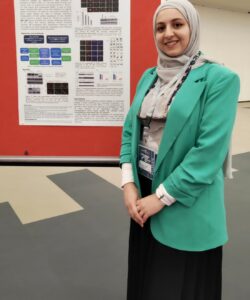
Miss Nesreen Alkhofash
PhD Student
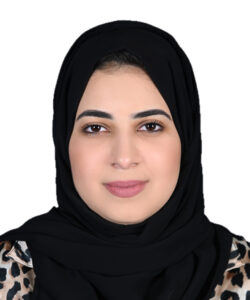
Ms Besan Alsaafeen
PhD Student

Miss Alia AlMehrezi
Medical Research Specialist
Find out more
Have questions?
Feel free to contact us:





